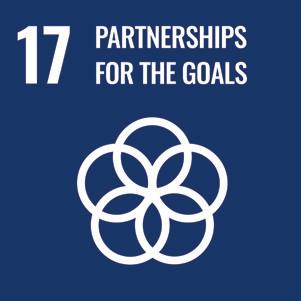Goal 8
The working conditions in fish processing factories have always been physically demanding and involved a lot of manual work. We build solutions for onshore and onboard factories that contribute to increased productivity and automated processes. This results in less strain on employees, changed physical requirements and an increased opportunity to stay longer in the job. This also contributes to SDGs 3 and 5.




We help to improve usage of aquatic species, raise catch quality and provide a better economic outcome for customers without the need for overfishing. Automated solutions provide an opportunity to increase efficiency and shorten the time taken to reach the boat’s quota, and thereby increase financial gain.
Optimar is an industrial company, and our safety culture is present at every level of our organization. We promote a safe and secure work environment, with orderly working conditions, a commitment to labour rights both in-house and throughout our supply chain. Machine Safety is highly prioritized when we design our factories, with all precautions being taken, and the customer is given training in the safe use of Optimar equipment.
Goal 12 Goal 14
We strive to reduce our own carbon footprint by focusing on our direct and indirect emissions and energy consumption. A low footprint in our production process will contribute to a lower total footprint in the value chain. We strive to radically reduce the amount of waste generated through both prevention and recycling.
We produce long-lasting equipment that can be upgraded during its lifespan, rebuilt to fit new requirements at the same facility or adjusted to fit into a new factory. We strive to extend the life of the product with as little downtime as possible. Reduced downtime also cuts the number of times a boat must return to shore for maintenance, and contributes to reduced energy consumption and fuel used during transportation.
A major challenge for the marine fleet especially is fuel consumption and concomitant emissions. Our contribution to reduced fuel use is to develop equipment where moving parts stop automatically when not in use. The stand-still function reduces energy consumption and wear and tear. Heating and cooling equipment in particular consume a lot of energy. When designing such equipment, it is therefore important to analyse how energy consumption can be reduced, thereby lowering our customers’ operating costs and investment payback time. This will also make it possible to lower food costs, thereby indirectly affecting SDGs 2 and 13.
We design our factories to ensure that food is produced cost-effectively and with minimal loss. Our designers understand how the mechanical construction, moving parts, drops and machine interfaces impact the quality of the final product. Optimar factory systems are therefore purposely designed to preserve the highest degree of food quality.
We require the interests of our stakeholders living below water to be taken into account in the design and engineering of our automation and control systems. Our digital platform has been developed to gather operational data that helps document customers’ operations, from a production, environmental and efficiency perspective. The digital tool
Together with our customers, we are focusing on more energy-efficient factories, and how we can help to monitor and avoid pollution to the sea. We are helping to develop an advanced fish sorting and grading system, allowing for improved traceability and sustainability in the fishing industry. This will also give better opportunities to report on harvested fish stocks and increase verification efforts in order to reduce overfishing.
By always prioritizing cleanable designs, we reduce the amount of scrubbing and chemicals needed to clean our equipment, reducing the amount of waste discharged into the sea. Our delousing system has been developed to remove lice without the use of chemicals. The chemicals used in traditional delousing methods are a threat to marine life surrounding openpen fish farms.
Goal 17
We are contributing our expertise and technology to partnerships with academia, public authorities, animal welfare organizations and marine clusters.
When it comes to design, we always work in close collaboration with our customers. Where relevant, we also use the opportunity to collaborate with public authorities and research institutes. Engineering is often be undertaken at our international production sites and sales offices. It is our policy to learn from each other and share competence and experience for the benefit of the industry.
We have a global presence and aim to learn from our global network of stakeholders, particularly about issues that impact our drive towards sustainability. We shall are always keen to receive actionable feedback from any corner of the world. Needs and requirements are first entered in our Optimize conformity system and then incorporated into our products when the improvement will be widely beneficial.
This ultimately leads to product designs based on worldwide experience.

